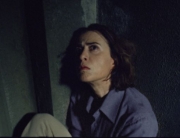Two men search for a missing woman in a region where she was a stranger. They are not detectives but her boyfriends, Rafael (Rafael Spregelburd) and her temporary co-worker Ezequiel (Ezequiel Pierri), also known as Chicho. Laura (Laura Paredes) had been working in the Argentinean city of Trenque Lauquen as a botanist for just over a month. After finishing her work, she did not return home to Buenos Aires. The last thing known about her was that she borrowed Chicho’s car. An important clue is a piece of paper hidden on the windshield of the recovered vehicle that Ezequiel secretly removes when Rafael is distracted. The note, addressed to Ezequiel, says, “Farewell, Farewell. I’m leaving, I’m leaving.”
This is the perfect starting point to immediately feel involved with the movie’s promise of action and mystery. But what if I told you that this is just one of many pieces in an ever-changing narrative puzzle set over more than four hours, where what you thought was fundamental and significant at one point becomes irrelevant later? Welcome to Trenque Lauquen, not only to the city that gives the film its title but to its marathon and kaleidoscopic viewing experience.
Directed by Laura Citarella and co-written with Laura Paredes (yes, the lead actress), Trenque Lauquen is not an endurance test, despite the running time. Rather, it’s a game that challenges and confuses viewers. Laura’s disappearance remains the central mystery, but not the only one. Laura, an academic temporarily dedicated to the study of flora, has left without a trace, while two of the most important men in her life (or so they think) have no logical explanation for her absence. (It’s unthinkable for them to ponder she left voluntarily without telling them.)
Rafael alternatively considers the possibility that she has become obsessed in her research or that she may have become scared about their plans to live together. Chicho has a secret history with Laura, whom he served as a driver during her stay in Trenque Lauquen. Characters, such as the host of the radio show where Laura participated as a frequent guest or the boss who supervised her project, offer alternative perspectives. The result: The weight of these men in Laura’s decisions becomes less than they assume. The recounts go back and forth in time, expanding or adding hypotheses as the questions multiply. The different visions of other characters and their relationship with Laura make you think of Otto Preminger’s Laura (1944) as the film flirts with certain characteristics of film noir (flashbacks, the resolution of a case, women who awaken obsessions), although playfully. It’s a film full of Lauras, after all.
Exuberant moments—like the section focused on the discovery of a long-ago correspondence of love (and erotic) letters hidden in the spines or glued pages of multiple books—are engaging as we see how this affects the relationship between Chicho and Laura. Meanwhile, the protagonist is portrayed as a woman in constant search of adventures, whether collecting fascinating stories about famous women to discuss on the radio (from Lady Godiva to Russian revolutionary Alexandra Kollontai) or uncovering the salacious love life of Carmen Zuna (the recipient of the secret letters). Paredes, one of the greatest South American actresses of her generation (just look at her brief but memorable turn in Argentina, 1984), assumes the role of an inscrutable enigma until the rewarding moment arrives: Laura finally gets her proper turn to tell her side of the story while recording a message for a friend.
Citarella and Paredes have managed to make Laura’s odyssey funny and entertaining enough, while full of surprises so as not to bore cautious audiences. (Don’t worry, there’s a break between its two parts.) In the context of recent South American cinema, it’s comparable to Mariano Llinás’s La Flor (2018), a mammoth epic of nearly 14 hours, coincidentally produced by Citarella. To a certain extent, the director has created a spiritual companion and a female response to that work (the two films even share some actors). In both cases, the trick is surrendering to the sensual pleasure of telling and listening to stories.
Trenque Lauquen, which could well function as an ironic tourist ad for the titular town, stands out as a unique example of South American cinema, rich in ambition while delivering thematic and conceptual complexity. If you dare to accept it, the movie is an invitation to get lost in baroque labyrinths of storytelling without caring about finding an exit.

















Leave A Comment